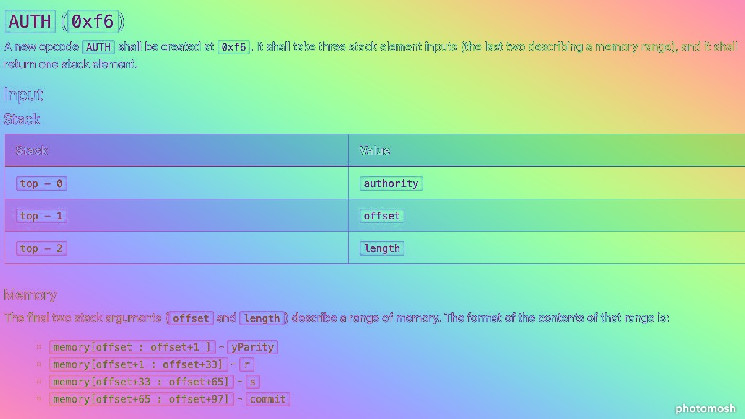As blockchain teams strive for the holy grail of mainstream adoption, making crypto wallets easier to use is suddenly at the top of the agenda.
Ethereum developers have been moving along with their discussions and inclusions of certain Ethereum Improvement Proposals (EIPs) for the blockchain’s next big hard fork, Pectra.
One of the proposals that has drawn both support and concern from the Ethereum community is EIP-3074, a code change that is supposed to improve the user experience with wallets on the blockchain.
Ethereum developers have tackled issues in the past that would make the user experience with wallets easier, and have deployed features that unlocked newer capabilities. But now, developers are pushing to make the experience even easier, and enshrined in the blockchain.
This new change is supposed to allow a specific type of wallet, externally owned accounts (EOAs), to be more programmable, by allowing smart contracts to authorize them.
Paradigm Chief Technology Officer Georgios Konstatonopolous said on X that EIP-3074 “is a big deal. Wallet UX will 10x.”
Currently on Ethereum, there are two types of wallet accounts: EOAs, which are the most popular, like MetaMask and Coinbase wallet, and smart contract wallets, like Argent and Safe.
Users of EOA accounts are given a pair of keys – a public one and private one – while smart contract accounts are wallets that are controlled by code. The problem with EOAs comes down to human error; if you lose a private key to an EOA account, there is no help desk or key recovery process that can help you regain access to your funds.
Previous proposals, like ERC-4337, have aimed to make EOAs easier to use, a concept known as account abstraction (AA), which allows users to recover their crypto with smart contract features.
EIP-3074 is another step in this type of innovation, delegating transaction capabilities to smart contracts. A key component of the proposal is to allow users to batch transactions together and have them sign off on it once. Other features include having third parties sponsor users’ transaction fees, so decentralized applications (dapps) can for instance cover the gas costs for their users.
The proposal, created as far back as October 2020, also allows for users to sign transactions that were submitted by a different party – for example, signing transactions from a different interface, or signing them offline. The authors are Sam Wilson, Ansgar Dietrichs, Matt Garnett and Micah Zoltu, according to the document.
The key difference between EIP-3074 and ERC-4337 is that “the former focuses on getting all the benefits of execution abstraction, and the latter focuses on getting all the benefits of account abstraction on all EVM chains but in a non-native way that is less efficient,” Ethereum Foundation developer Yoav Weiss writes. “Both are steps to get some of the benefits of full native account abstraction.”
Community pushback
While many in the community showed their support for the proposal, others have cautioned moving forward with this over security concerns with the batched transactions feature.
Lukas Schor, the co-founder at Safe that has advocated for ERC-4337 and for Ethereum wallets to implement full account abstraction, voiced concerns that while this proposal does move in the right direction, he fears the EIP lacks “any clear pathway to full AA and has a net-negative impact on AA adoption.”
The co-founder of Argent wallet, Itamar Lesuisse, also posted on X that EIP-3074 might be a serious security concern, writing that it allows “a scammer to drain your entire wallet with a single off-chain signature. I expect this will be a major use case.”
Mudit Gupta, chief information security officer at Polygon Labs, also had security concerns, calling for wallets to “ban EIP-3074 MAGIC signatures on a per wallet basis.”
“For security reasons, I do not want to expose my cold wallets to AA batching,” Gupta added.
Read more: Ethereum Upgrade Could Make It Harder to Lose All Your Crypto

